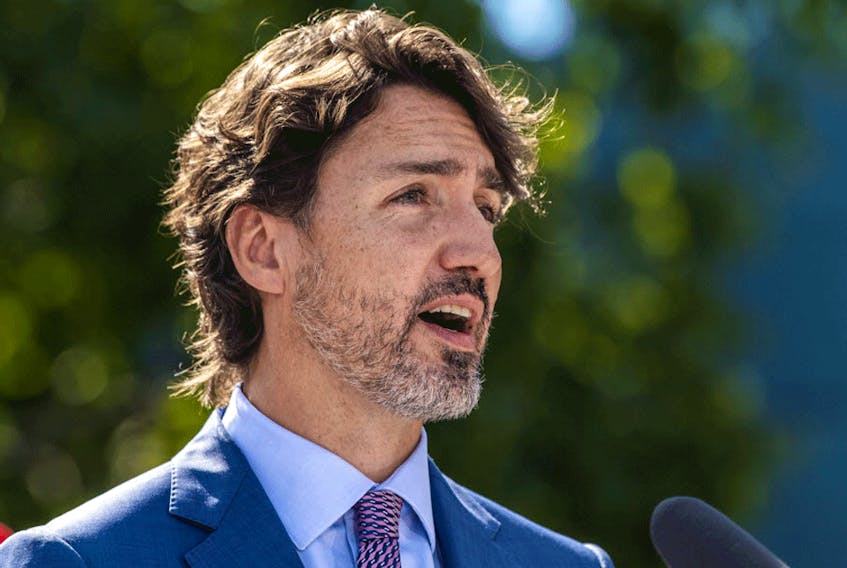OTTAWA — The Liberal government’s throne speech aims big when it comes to promises on national childcare, pharmacare, and long-term care standards. But delivering on them could be trouble due to one little problem: these are all areas of provincial jurisdiction.
“Disappointing speech from the throne for Quebec,” said Quebec Premier François Legault, tweeting in French after the speech. “Does not respect the jurisdiction of the provinces in health. I will discuss it tomorrow with the premiers of the other provinces.”
Conservative House Leader Gerard Deltell, who is from Quebec, also had the same criticism when speaking with reporters.
“The Liberals have it in their DNA to interfere with provincial jurisdiction,” he said in French. “The Liberal government, based on its usual habits, said: ‘No, no, we are Ottawa, we know what’s best, we will do the work for you.’ But that’s not the way Canada works.”
The federal government’s spending power has long given it the ability to play a role in areas that are otherwise provincial responsibilities. For example, there are already bilateral funding agreements in place between Ottawa and each of the provinces on childcare that include shared guidelines and reporting requirements.
But dreaming up large new national programs may be easier said than done.
At least on paper, the throne speech envisions a post-pandemic Canada with expansive new social programs.
“It has been nearly 50 years since the Royal Commission on the Status of Women outlined the necessity of child care services for women’s social and economic equality,” it said. “Canadians need more accessible, affordable, inclusive, and high quality childcare. Recognizing the urgency of this challenge, the government will make a significant, long-term, sustained investment to create a Canada-wide early learning and childcare system.”
The Liberals have already been taking slow steps towards a pharmacare program, and the throne speech said the government is “committed to a national, universal pharmacare program and will accelerate steps to achieve this system.”
Meanwhile, the throne speech promised the government would “work with the provinces and territories to set new, national standards for long-term care so that seniors get the best support possible,” and would “take additional action to help people stay in their homes longer.”
The childcare promise is likely to get the most attention, and was greeted enthusiastically by advocate organizations.
“The federal government is responding to the loud chorus of voices across Canada demanding immediate and long-term measures to address the extreme shortage of affordable licenced childcare for children 12 and younger,” said a statement from Morna Ballantyne, executive director of Child Care Now.
The Canadian Child Care Federation called it “a historic day, one that has been a long time in coming.”
The Liberals have it in their DNA to interfere with provincial jurisdiction
Don Giesbrecht, CEO of the Canadian Child Care Federation, said in an interview that he believes that the federal government can use the existing funding agreements with provinces to make a national program happen.
“Some of that groundwork has already been done through the bilateral agreements,” he said. “What I see in the throne speech today is obviously more significant than that, but it creates at least a template for how that works.”
Still, he acknowledged that it can get complicated quickly when a prime minister tries to get all the provinces on board with a new program.
“It can absolutely (get complicated), I’m not going to say it can’t,” Giesbrecht said. “But if our focus is on the recovery of our economy, if it’s about providing high-quality spaces for children and about ensuring that women are able to get back in the workforce, it’s not a hard conversation because this is the proven solution to do that.”
The other obstacle that may arise to implementing these programs is the prospect of a new election if the Liberals can’t get support in this minority parliament.
They only need the support of one of the three largest opposition parties to stay governing, however. While the Conservatives immediately said they can’t support the speech, NDP leader Jagmeet Singh was more conciliatory, saying he’s not looking for an election and his government may support the government’s agenda if it provides paid sick leave and keeps pandemic financial assistance in place.
Asked whether he’s concerned the Liberals are straying too far into provincial jurisdiction, Singh said that during tough times like a pandemic, people want to see levels of government working together.
“I think we can make progress while still respecting provincial jurisdiction, and this is no time to get mixed up in debates about provincial jurisdiction or federal jurisdiction,” he said in French. “It’s time to help people who need help.”
• Email: [email protected] | Twitter: btaplatt
Copyright Postmedia Network Inc., 2020









